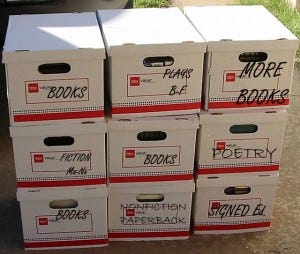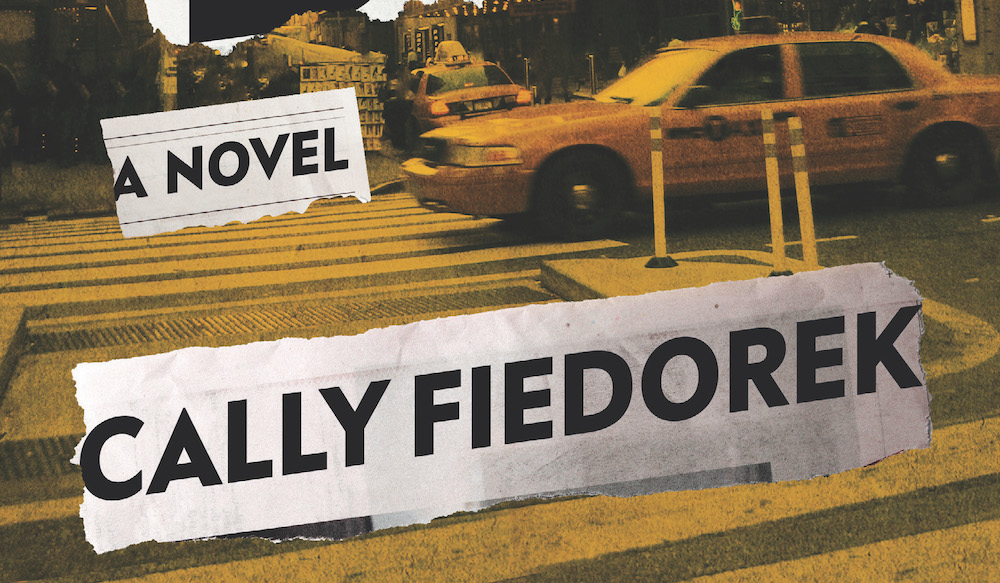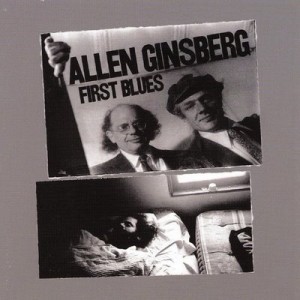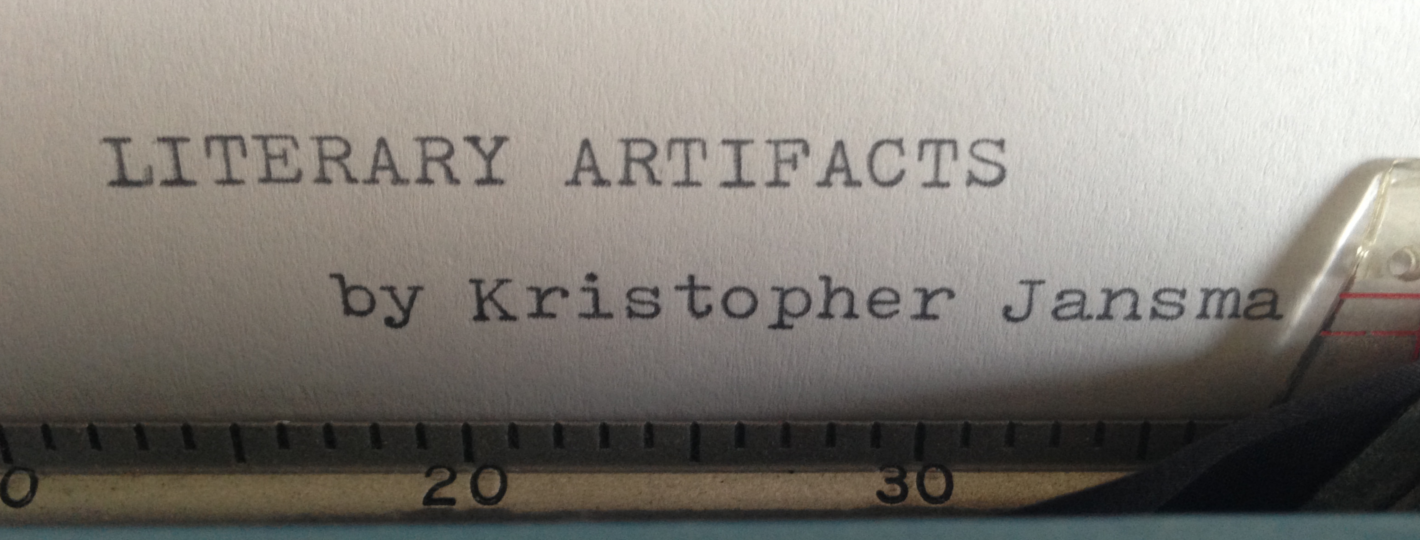Books & Culture
LITERARY ARTIFACTS: The Bibliophiles Move

Last month, my wife Leah and I decided to bite the bullet and move to the distant shores of Brooklyn. I’d lived in Manhattan for nine years, and she for seven, during which time she had worked in publishing and I was an MFA student, then a writing professor. Meaning that, in the span of time since we’d first carted up our modest collections of college books, our library multiplied considerably.
Excited by the prospect of saving on rent, my wife and I signed a lease for a one-bedroom apartment across the East River, about the size of our old place and in proximity to another good bookshop. Only later did we stare up at our five overstuffed IKEA bookshelves, remembering what an impediment our literature collection could be in a relocation: more cumbersome than our bulky kitchen appliances, our box-spring, even our couch, which did not technically fit through our front door.
I got out my measuring tape and my calculator. All told, we had 606 inches of shelved books, or 50.5 feet. To that, I added another 174 inches (or 8.83 feet) of books that were piled in various other places in the apartment: by the foot of the bed, under the nightstand, on the coffee table, inside the entertainment unit, and in various bags in the closet. I decided to not worry about the additional four boxes of books that I keep in my office because there is no room for them at home. Our grand total came to approximately 65 feet of books in our 650 square foot apartment.
My jellybeans-in-the-jar estimate was that Leah and I owned about 900 books between us. Figuring that one linear foot of books equals about half a cubic foot, at an average of 22 pounds per cubic foot, we owned 715 pounds of books. It was more than a third of a ton of ink and paper and binding, and an investment of thousands of dollars over the course of two reading-lifetimes.
We got to work pulling down various books we barely recognized, particularly the free ones that Leah had brought home from BEA, or that I had gotten from textbook sales reps. For hours we tossed books onto the table, periodically stopping to veto the other’s rejects. “Didn’t my mother buy this copy of The Stone Diaries for you?” … “Wait, you said you didn’t even like Kavalier and Clay”… “Is this your Moveable Feast or mine?”
Because we attended the same college and took some of the same classes, we have duplicates of several class books. At the time it was unthinkable to simply share copies, as it is now unthinkable to get rid of the duplicates. Her Sound and the Fury is not mine; her notes carefully color-coded purple, green, and red — all thoughtful and declarative: “Benjy, free from chronology, introduces us to the world + tells us to abandon our preconceived notions of linear sense.” And mine, all in the same black Pilot pen ink I’ve used since middle school — all illegible and interrogative: “Quentin/Caddy, real incest or only implied????”
Books came off the shelves; books went back on the shelves. Eventually we managed to fill four heavy tote bags with discardable books. It took me two long subway rides to get them down to The Strand. Altogether, the 50 books earned us $48, and then we still had 60 feet of books left to deal with.
“I’m not boxing them all up again,” Leah said.
“I don’t want to do it,” I said.
We had made one previous intra-Manhattan move together, for which she had lugged home used boxes from

work at a rate of 4 or 5 per day — all she could carry, but not even close to the number we needed to get by our move-out date. We spent more and more and more on boxes at the nearby Staples, and still the pile never seemed to diminish. Meanwhile the stack of already-boxed books steadily engulfed all remaining floor space.
This time, we decided we’d pay our movers a little extra to do it for us. On move-out day, the crew arrived early and in high spirits. “Come early, done early!” their leader announced in good cheer, as his three sturdy Russian colleagues brought in wheeled carts and wrapping blankets.
“We’ve pretty much packed everything up,” Leah said, smiling.
“Except for this room,” I added.
Neither of us took enough Russian in college to understand the swear words we heard next. It took two very aggrieved-looking men several hours to box all the books up. Meanwhile, Leah and I each took trips to the ATM to get more cash, until our daily withdrawal limits had been met. At the end of the day our pockets were empty and, worse, our shelves were filled again. Our 850 books had come out of their boxes in no discernible order. Signed copies mixed in with children’s classics, mixed in with poetry and plays, yet-to-be-read books mixed in with the ones we’d reread a dozen times or more. Exhausted, broke, and sick to our stomachs, we looked down at the pile of flattened boxes — so expensive, and now, to simply be thrown away. Then we stared up at our bookshelves, which teetered nervously and leaned away from one another on our uneven new floors.
“Should we — How do we — ? Do we take them all off again?” I asked.
“Let’s deal with it later,” she sighed.
Over the next few days, we reorganized our clothes, restocked our pantry, and realigned the furniture with ease, but the books remained disordered. They felt like a 700 lb. albatross around our necks, warning others of our foolish attachments. I found myself fantasizing about getting the Russians to come back and just haul them all away. We could start fresh! New borough, new books. Go from five shelves to one… or none! For the first time ever, I dreamt about going on IndieBound and replacing everything with eBook copies. The future was now! I daydreamed of simply picking up my 1 lb. Kindle Fire and tossing it in Leah’s purse. Done. Ready to go anywhere. Plus, we could reclaim our space! Get back those 12.5 precious square feet of our scant 650. We’d have enough room for a treadmill. We could run on it while we read our eBooks in magnified fonts. We would be healthy, wealthy, and wise!
But after a week, I shelved these fantasies (pardon the pun) and resumed the task of reordering our books. To set the mood, I put a movie on in the background: High Fidelity, thinking of the scene where the main character, Rob (played by John Cusack), decides to reorganize his immense record collection.
“Is this… alphabetical? Chronological?” his friend asks, in awe of the many piles on the floor.
“No,” Rob replies smugly, “Autobiographical.”
He explains that, if he wants to listen to a specific record, he will have to remember exactly when he bought it, and what was going on in his life at the time–all that the record symbolizes and represents about himself. He wants to build a narrative for himself, to map out exactly how he got from The Clash to The Beta Band and what this has to do with his melt-down of a life.
And as I make alphabetical piles on the floor, I begin thinking autobiographically too–or, rather, our-tobiographically. The first book on our shelf is Chinua Achebe’s Things Fall Apart. Leah had to read it in high school and marks it among the most depressing things she’s ever read. Soon I find our Nicholson Bakers–I have long loved The Mezzanine, though the footnotes make Leah dizzy. She really enjoyed The Anthologist, but found House of Holes far too ridiculous at the beach last summer. Our Calvinos overlap–we have her mother’s old copy of If on a Winter’s Night a Traveler and I have my own. We each have Six Memos for the Next Millennium which was required reading our Freshman years, and which she mastered immediately and I still can’t follow.
In the “F” pile, I find the copy of The Corrections that I took on a trip to Africa with her parents in 2009. I had to hide it behind the dust jacket of Ford’s Lay of the Land, because I knew how much her father disliked Franzen. With the H’s, I find our complete collection of Nick Hornby books, including High Fidelity, which we read together back when we first began dating. On one anniversary , she bought me a copy of Songbook and made me CDs of all the music he discusses in it. Years later, we took it to a reading so Hornby could sign it. For days she had planned to tell him coolly about the gift, and how we were planning to get married at the Housingworks Bookstore, which we knew he was involved with. She’d dreamed of how he would, just as coolly, invite us to share a drink with him and Sarah Vowell at Old Town Bar. When we finally got to the front of the line, she was so starstruck that she simply blurted out “Nick Hornby, I’m getting married!” to which he replied, “Congratulations?”
Our apartment was still a minefield of stacked books when I finished filling our third shelf with I’s and J’s. There seemed to be no way they’d fit on the remaining two shelves. But if we bought one more, how long until we needed another? And another?
As I’m unpacking, High Fidelity’s Rob shares a pearl of his doofus-wisdom: “Long ago, I realized that it’s not what you’re like, but what you like that really matters.” Rob defines himself, and everyone else, by their tastes. He thinks of himself as a scholar, but the truth is that he’s a snob. He wields his comprehensive musical knowledge like a club against those around him. I begin to wonder if that’s what our collection seems like to others. All that Joyce and Woolf. All the Hemingways and Nabokovs. When we host little dinner parties at our table, sandwiched between our bookshelves, do we seem ostentatious? Our friends all seem to manage to survive with one neat shelf containing only their very favorite books. We have volumes and volumes that neither of us has read. The ones I have read, I rarely re-read. And at least twice a month, I’ll drop by a bookstore and spot something I’d like to get around to someday. I come home, feeling like an addict, hiding the books that I shouldn’t have bought in the gaps between the shelves, hoping Leah won’t notice a few more. She comes home from work with a few galleys in her purse, which she leaves in there, by the umbrella stand, for a rainy day.
If there is ever a force strong enough to drive us out to the suburbs, we know it will either be that either our children or our books need room to grow. Back in college, Leah and I each spent time in the home of Professor Richard Macksey, whose collection of 70,000 books and manuscripts–valued at $4 million–is said to be the largest private library in the state of Maryland. Every wall, in every room, is floor-to-ceiling bookshelves except where a door or window needed to be. In front of each wall was a long table, piled high with books — beneath which even more books were stacked. Students could get lost in there for hours, if not days. Once it was my dream to live in there–now I worry it is my fate.

Leah’s sister has emphasized our close proximity to the Brooklyn Public Library, but something about reading a loaned book makes me itch. In elementary school, we used to take field trips to the Old Bridge Public Library, where we were allowed to check out three books on each visit. I’d rush from the bus to counter, to return the copy of D’Aulaire’s Greek Myth that I’d taken out the week before and then immediately check it back out again. Eventually I began doing this with the Norse Myths too, and so only had one spot left for an Encyclopedia Brown or a Great Brain book. I loathed discovering that a book I was desperate to read had been checked out by some stranger. For my tenth birthday my parents finally got the hint and bought me my own copy of the Greek Myths–I keep it up in my office now–but the Norse ones went out of print for a long time, and it wasn’t until college that I found it reprinted online and, as a grown-up with my own money, excitedly ordered it for overnight delivery.
Growing up, I was not allowed to play video games, and trips to Toys R’ Us were carefully monitored to be sure I did not come home with a water gun or GI Joe that might encourage malevolence in a young boy. But my mother was always happy to take me to Barnes & Noble to pick up a book, and a good report card meant a shopping spree. As a boy, I organized my books by a secret system, which I’ve now forgotten. Without turning on my lights and alerting my parents that I was awake, I could find my copy of The Boxcar Children by touch alone and squirrel it back to my bed to read by the moonlight.
Suddenly I’m reminded that that book, and hundreds more from my boyhood shelves, are packed into an already-overfilled storage unit down the block–just waiting to be given to my future children. Yet another monthly expense, year after year, in the name of my nostalgia for books.
Back in the apartment, annoyed and still surrounded by piles, I decided to give up. Taking up piles by the armful, I threw all the M’s on one shelf, all the N’s on the next, and kept going until I was at Z. Next went the plays, the poetry… steadily I began to feel elated. Back in Manhattan there’d been tons of extraneous piles, but here, in Brooklyn, somehow our 850 books actually fit, as if by magic! I slid our dictionary into the final open space and then I stepped back to see them all there, perfectly in place on the shelves.
Immediately I tripped over three enormous “S” piles that I had overlooked. Sedarises, Singers, and Salzmanns went flying in all directions. There were two more shelves-worth of books, still homeless. Howling, I left the apartment, and took a train back to Manhattan.
I met Leah at a Barnes and Noble on the Upper West Side for a reading of a new debut novel. Leah bought a copy and we got it signed. I thought miserably about how there was no more room left on the shelf with our other signed books: the Hornby, my David Mitchells, a Robert Frost collection we’d gotten as a wedding gift, and many more. I told her all about my losing battle with the bookshelves.
“What are we going to do?” I asked.
“We’ll make room,” she said. “We always do.”
On the way out of the store, we could not help ourselves. We picked up a few more books to bring on our upcoming vacation. Leah told me how, as a girl, whenever a long car ride or plane flight was coming up, she got to pick out new books, which were then stuck up on a high shelf so she wouldn’t read them all before they left. I laughed, remembering that my parents had done the exact same thing: the only solution when raising little voracious readers.
On the way home to Brooklyn, we cracked our vacation books open with glee–no parents around to tell us we had to wait.
***
More Literary Artifacts here.
***
–Kristopher Jansma is a writer and teacher living in Manhattan. His debut novel, The Unchangeable Spots of Leopards, will be published by Viking Press in 2013. He has studied The Writing Seminars at Johns Hopkins University and has an MFA in Fiction from Columbia University. He is a full-time Lecturer at Manhattanville College and also teaches at SUNY Purchase. Recently, his short story “A Summer Wedding” won second prize in The Blue Mesa Review’s 2011 Fiction Contest, judged by writer Lori Ostlund. His essays and fiction can also be found on The Millions, ASweetLife.org, The 322 Review, Opium Magazine, The Columbia Spectator, and The (Somewhat) Complete Works of Kristopher Jansma. You can also find him on Facebook.









